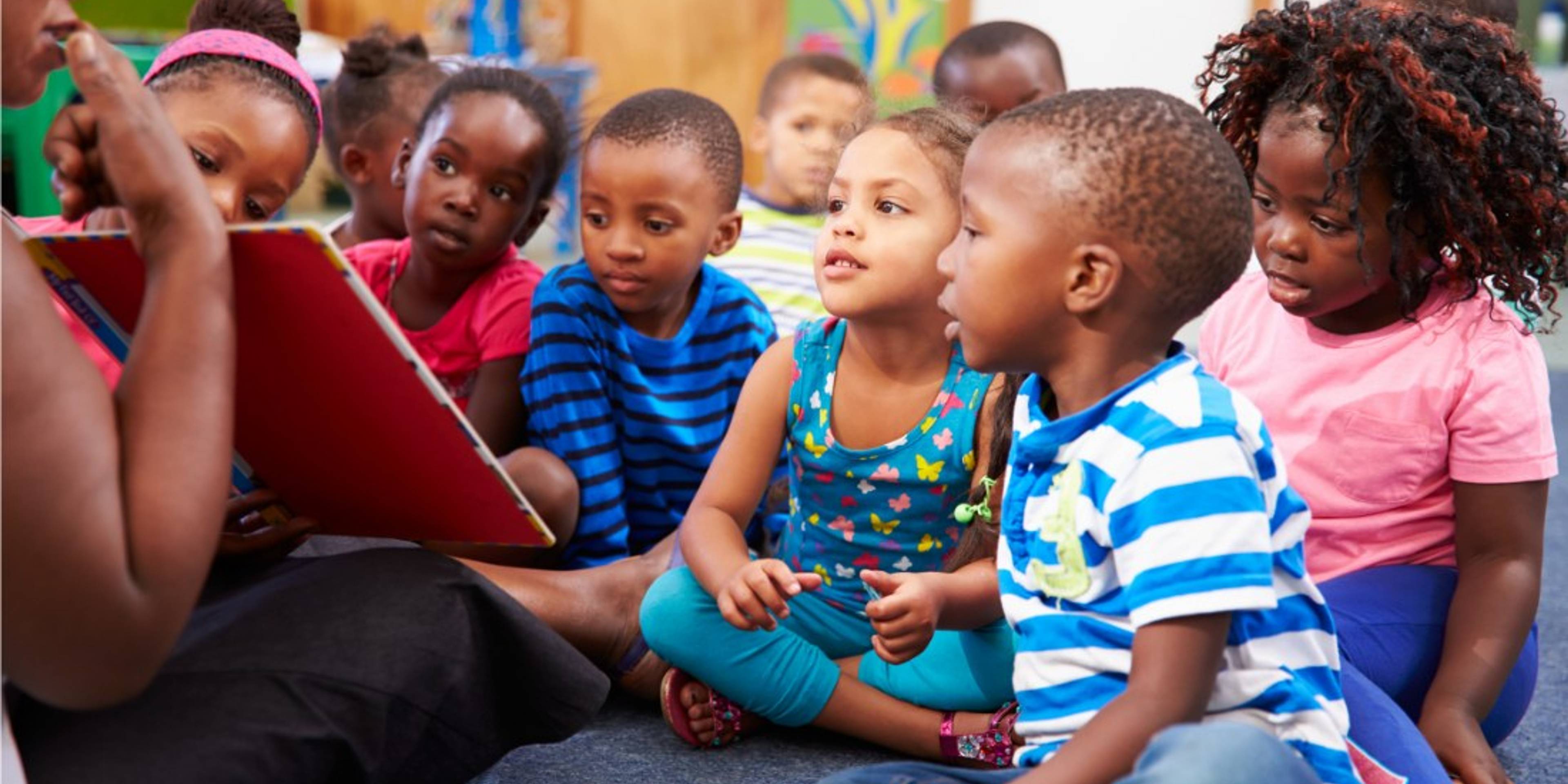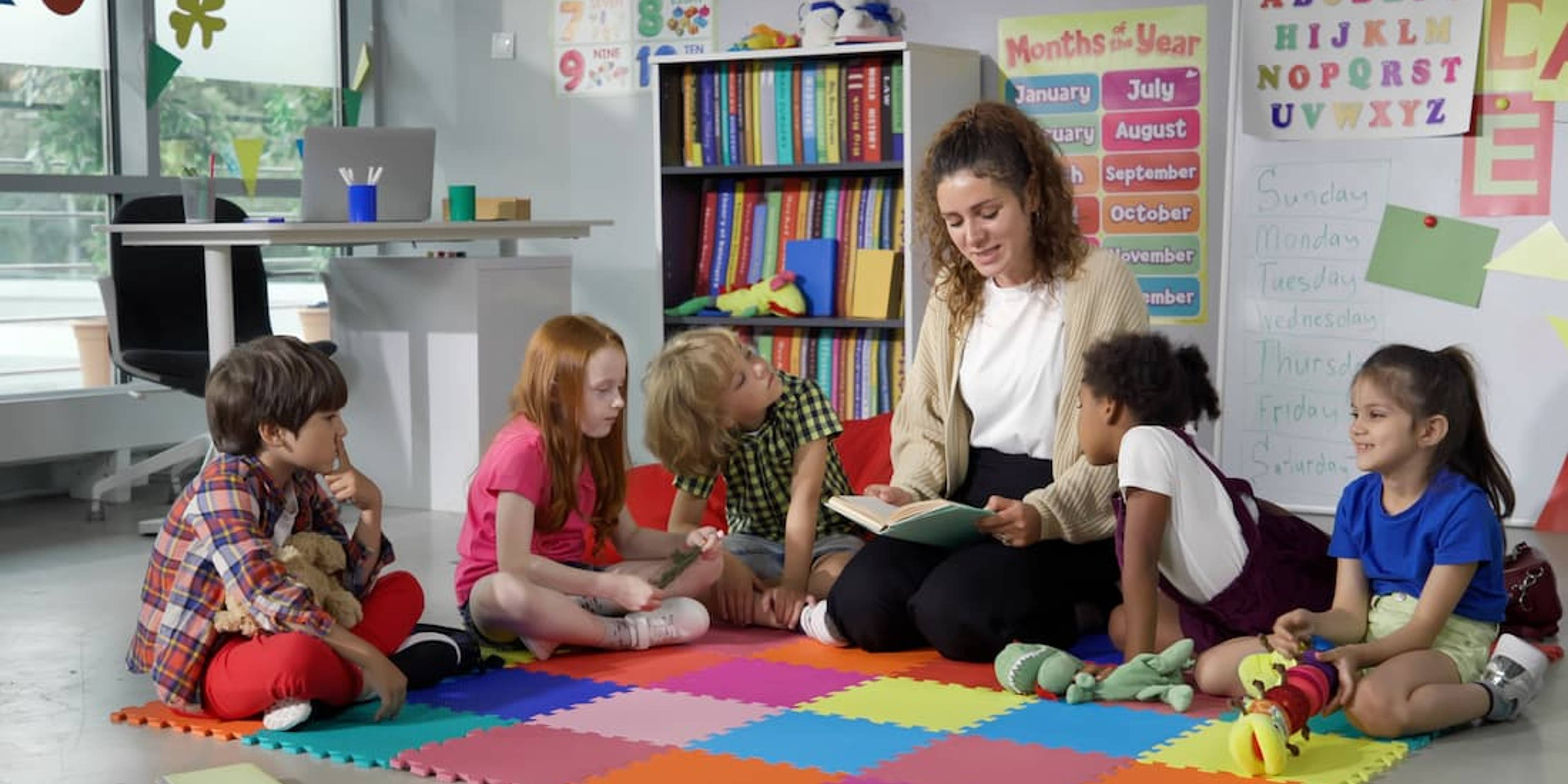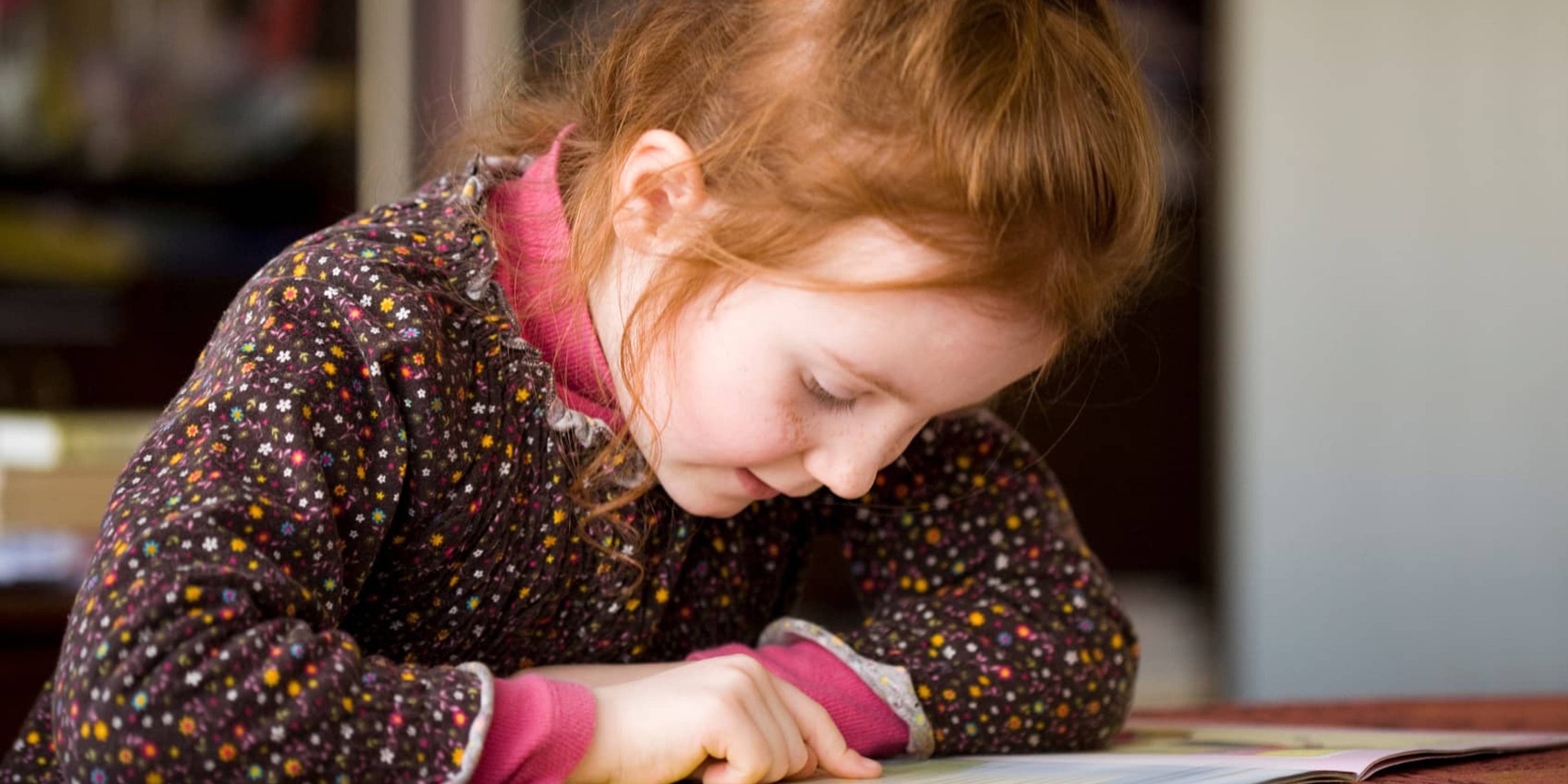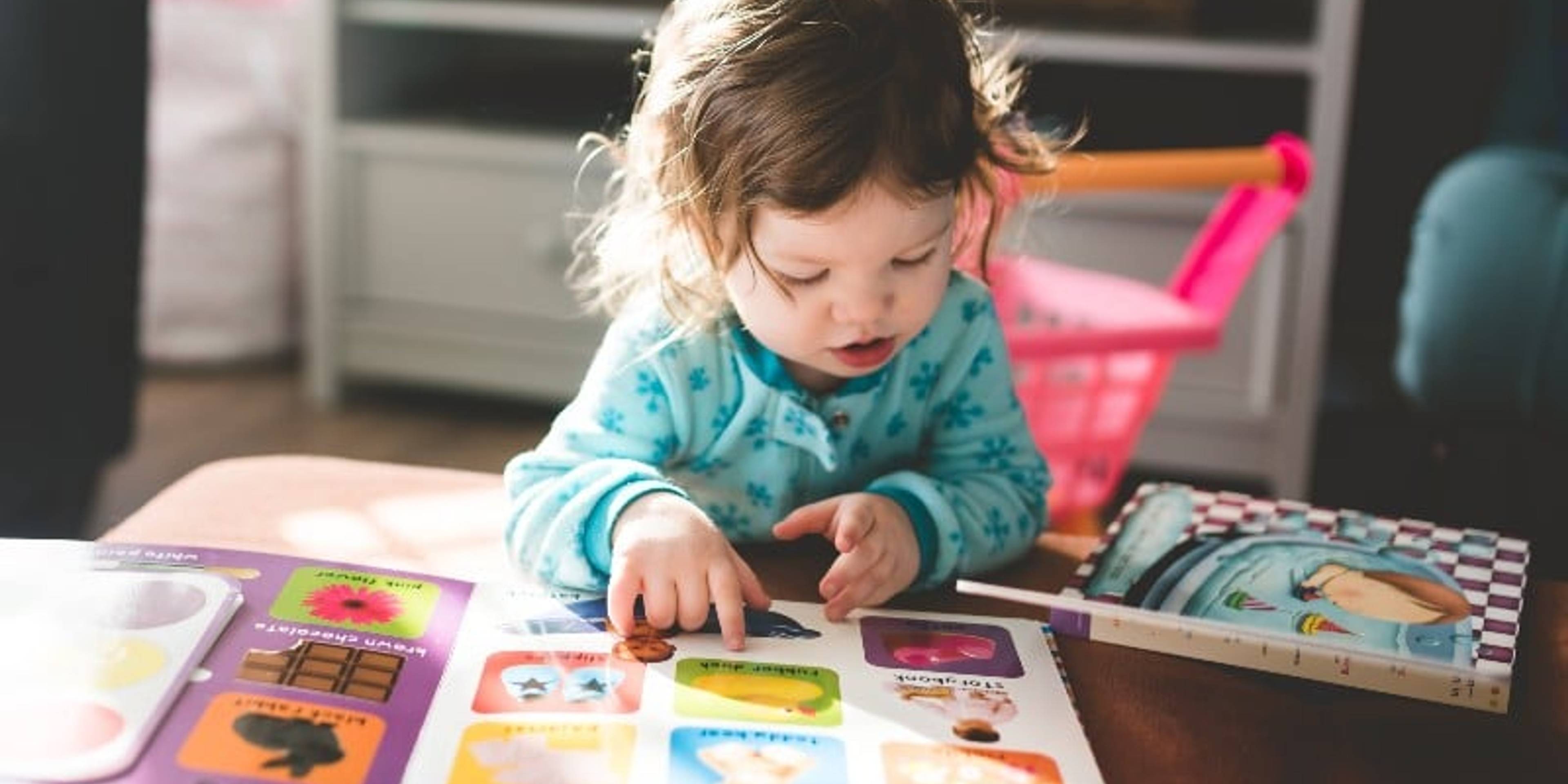June 13, 2024
NELI Preschool: a new oral language enrichment programme for preschools and nurseries

Oral language skills provide the foundation for formal education, yet many children enter school with language weaknesses. Oral language is fundamental to children’s overall development and educational success. It is linked to all higher level cognitive skills and is pivotal for literacy development, and education more generally. It’s also vitally important for children’s social and emotional development.
The term oral language refers to a complex set of skills that should ideally work seamlessly together to enable children to communicate with others by producing and understanding language. It’s an umbrella term, encompassing numerous component skills which include having a good vocabulary and the grammatical ability to combine words effectively to convey meaning, along with an understanding of cause and effect, memory skills and the ability to plan what to say and what not to say.
Language skills develop rapidly between the ages of 3–6 years making preschool an excellent time to intervene to support language development. Because of this, Dr Gill West and her colleagues – as part of a team headed by Professor Charles Hulme – have developed and evaluated the efficacy of a new language enrichment programme, the Nuffield Early Language Intervention—Preschool (NELI Preschool), which is delivered to children the year before they enter formal education. The programme combines language enrichment for all children, with additional targeted support for those with language needs, potentially narrowing the gap in language skills associated with social disadvantage.
Summary
“To our knowledge, this is the first randomised control trial to demonstrate substantial improvements in children’s oral language skills from a whole class language enrichment program.”
NELI Preschool is a 20 week, scripted, language enrichment program for children aged three and four. It is a universal enrichment programme designed to be used in nursery/preschool settings, which scaffolds the improvement of all children’s language skills through a scheme of shared reading and guided play. It also has an additional targeted support element for children identified as having weak language skills. The intervention is an evidence-based programme and has flexibility built in, enabling practitioners to tailor it to their particular circumstances.
The programme features 20 original children’s books and a significant amount of supporting materials relating to special ‘words of the week’ and narrative activities surrounding the stories. Children are encouraged to talk and supported to produce more cohesive utterances, using varied vocabulary. It also aims to support children’s narrative development, both in terms of telling stories and in the recounting of simple experiences and events from their own daily lives. It is designed to help children develop an ability to listen for longer periods of time, which will benefit them as they move into formal schooling.
The intervention also includes an extensive self-paced online training programme for educators which takes approximately 10 – 12 hours to complete and includes a detailed introduction to children’s oral language development, exploring the problems that children commonly experience and strategies that can be used to support language development. It focuses on the techniques used for shared book reading and teaching, as well as good practice in encouraging language production and active listening, and includes filmed sessions of programme delivery, enabling trainees to watch ‘best practice’ for each type of programme session, alongside additional expert commentary. A peer delivery support hub is also offered, which allows settings to come together, share experiences and showcase how the intervention is being implemented in their classrooms.
All children are assessed by teachers before the programme starts using the LanguageScreen app. This is also used to monitor improvements in language skills during the programme, and allows the staff delivering the scheme to make decisions based on the results. This assessment tool helps to identify children who need targeted intervention from the NELI Preschool programme, and children with substantial and long-lasting challenges, who may benefit from specialised, ongoing support from speech and language therapists or specialist teachers.
The programme has been trialled in 65 nurseries with 1,586 children through a randomised control trial. Half of the nurseries were allocated to the control group. Staff in the other half were trained to deliver NELI Preschool and subsequently used the programme. All children in the trial were screened by staff in their own settings.
Results showed that, on average, children receiving the NELI Preschool intervention made about three additional months of progress in language development compared to the control group (where children were still receiving high quality education). Many of the nurseries described boosts in confidence around oral language, for both children and staff.
Implications
Implications for schools
Interested schools and nursery settings have until 26th July 2024 to sign up to an Education Endowment Foundation trial to test the effectiveness of NELI Preschool.
The project will be evaluated by the Education Endowment Foundation through a randomised controlled trial. Settings that sign up are randomly assigned to one of two groups: the intervention group, who implement NELI Preschool; or the control group, where practice continues as usual. As they do not receive the intervention, the control group receives a larger payment for taking part in testing and has the opportunity to use this payment to implement NELI Preschool the following year.
The evaluation will be an effectiveness trial, meaning it will assess the impact of NELI Preschool in real-world conditions. It will evaluate the impact of NELI Preschool on children’s language skills, including receptive and expressive vocabulary, listening comprehension, use of words to cover information, and grammar.
Expressing interest in the programme does not commit settings to taking part. Please note that the trial is only available in certain geographical areas.
Implications for parents
Consider children’s language nutrition and build language-rich environments. Talk as much as possible with children. Listen carefully to what they say. Repeat back their responses and expand on them. Engage in activities that use language, such as rhyming and singing to help develop phonemic awareness.
Build on children’s experiences. Explore the world around them and use language to expand their knowledge and understanding. Chat as you go on daily walks. Be sensitive to your child’s interests and talk as you play alongside them.
Use dialogic reading techniques. Reading with children should ideally be an active process. When you are reading to them, involve them in the story. Ask questions and invite their opinions and perspectives. Attune to what they are interested in and nudge them to consider certain aspects of the plot or characters’ feelings further. Get as much information as possible from books and read a variety of different kinds and genres.
Picture books without words have their place, but ensure that you also use books with words. To use picture only books effectively, adults should be confident with scaffolding children’s language. The language used in books with words is commonly much richer than our everyday spoken language. Therefore, books with words give children the opportunity to get to grips with more interesting and varied vocabulary, and more complex grammar.
Audiobooks have a place, but should not replace written books. Many children enjoy audiobooks at bedtime or in the car. The books used on the NELI Preschool programme actually have a recording which children can listen to after reading the story. However, audiobooks tend to be a more passive experience for children, with less opportunity for interaction, so whilst they are a lovely addition, don’t rely on them instead of written books and talking.
Join your local library! Surround them with language.
If you are worried about your child, go and talk to their school or nursery.

Dr Gill West
Lecturer in Language Sciences: Development and Disorders at University College London
Dr Gill West is Lecturer in Language Sciences: Development and Disorders at University College London. Before taking up this role in 2023, she was a Research Fellow and Lecturer in Child Development and Education at the Department of Education at the University of Oxford. Her research focuses on language assessment and intervention in children, including large-scale randomised control trials of school-based language interventions. Recent projects include evaluations of the Nuffield Early Language intervention (NELI), the development of an online teacher training and support model for the programme to enable delivery at scale and the subsequent rollout of NELI to over 10,000 schools between 2020 to 2022, funded by the DfE as part of its Covid 19-recovery effort. She was also part of the development team behind LanguageScreen (www.languagescreen.com), an app used in schools to assess the language skills of children aged 3-8 years. She is now involved in the development and evaluation of a new early language enrichment programme for children in nursery. A successful efficacy trial funded by the Nuffield Foundation has been completed and recruitment of nurseries for the next stage of the research – a large-scale effectiveness trial funded by EEF – is underway.
In addition to her academic role, Gill is also one of the Directors of a University of Oxford spin out company, OxEd and Assessment Ltd, created to translate research into children’s language and reading difficulties into practical applications. Gill completed her PhD at UCL, combining an interest in both memory and language to investigate the relationship between memory processes and language in children.
Dr Gill West
Lecturer in Language Sciences: Development and Disorders at University College London
Related Resources

Reading to Your Child
Scroll our research gallery

Mar 17, 2025
Fostering a school culture against bullying: the KiVa Programme
Bullying is an extremely important public mental health risk. Around one in five primary school children report being bullied at least weekly. Children who are bullied are more likely to experience depression and anxiety, and are at heightened risk of mental health issues in adolescence and adulthood. Whilst schools in England and Wales are required to have anti-bullying policies, rates of bullying remain high. Bullying is preventable, but schools need more help to tackle it. Typically, school policies focus on how to handle bullying once it happens. However, evidence suggests that a comprehensive approach involving the entire school to prevent bullying, alongside clear strategies for addressing confirmed cases, is the most effective way to tackle the issue. KiVa is one such whole-school approach, developed in Finland by Professor Christina Samivalli. A large study in Finland which involved 28,000 primary school pupils found that adopting the KiVa programme in Finnish schools significantly reduced bullying and improved children's mental wellbeing. The programme has since been rolled out nationally by the Finnish government and ongoing use of KiVa in Finnish schools is associated with year-on-year incremental reductions in bullying. Along with colleagues, our researcher of the month, Professor Judy Hutchings OBE, has tested the effectiveness of the KiVa Programme in UK primary schools. The study involved over 11,000 children in Wales, Birmingham, Oxfordshire and Devon, and showed a 13% reduction in reported rates of bullying when compared with existing school approaches to tackle bullying.

Feb 12, 2025
When is the right age? Searching for age-appropriate ways to support children's online lives
Currently, children's and young people’s use of digital technology is rarely out of the news. Age limits are debated. Calls for stronger limits are made, and questions are raised regarding whether society should ban 'under-age' children from various aspects of the digital world. 13 years of age is often cited as a digital 'age of consent', though this varies in some countries. Commonly used age limits are largely arbitrary, based primarily on US legislation, rather than evidence. In a recent paper, our researcher of the month, Dr Kim Sylwander, and her co-author Professor Sonia Livingstone, consider age milestones and evaluate whether or not the evidence supports them. Are age limits the optimal way to regulate children’s digital experiences? Does it matter that they are widely contested and often poorly implemented? And are common boundaries even the “right” age, according to evidence from the field of children and digital media? Dr Sylwander persuasively argues that moving forward, a developmental approach can better support children’s rights.

Jan 14, 2025
Showing faith and trust in children nurtures integrity
A new study which explores the development of trust and integrity in children has found that expressing trust in young children encourages them to behave honesty. The research team, including our researcher of the month, Professor Li Zhao, studied whether children were less likely to cheat in a simple test of counting accuracy if the adult administering the test had previously conveyed trust in them. They found that children who were trusted cheated less than those who were not trusted. These findings provide novel evidence about the causal effect of trust on the development of children's honesty.

Dec 17, 2024
Intrinsic reward and word learning
From infancy onwards, humans display an innate motivation to acquire language and to communicate. We start acquiring words as babies and continue to do so throughout our lives. In fact, children are thought to learn over 3000 new words each year. However, relatively little work has focused on why we are motivated to learn words, particularly when it comes to adolescents. Adolescence is a period of great neurological change and sensitivity to learning. It's also marked by changes in reading behaviours. Whilst children become skilled readers between the ages of 10 and 18, this period is also associated with motivational changes in reading, with teens frequently showing a disinclination to read for pleasure. This change often coincides with the transition from primary to secondary school. Policy makers are keen to motivate adolescents to read for pleasure, arguing that it would improve not just literacy outcomes, but also result in substantial economic and societal benefit. Recent research has shown that adults find learning words to be intrinsically rewarding, and that this intrinsic reward facilitates the entrance of new words into long-term memory. Our researchers of the month, Professor Saloni Krishnan and Professor Pablo Ripollés, set out to establish whether the same is true for children and teens.

Nov 14, 2024
Delivering effective menstrual education
Research has shown that menstruation and menstrual cycle symptoms can be disruptive and detrimental to physical, mental and social wellbeing. As many as 93% of teen girls experience dysmenorrhea (severe cramps) and girls with a typical cycle experience 11 menstrual cycle-related symptoms on average, potentially including mood changes, stomach cramps and increased levels of anxiety and fatigue. Adolescents with problematic symptoms have reported a negative impact on school attendance, behaviour, confidence around peers and participation in physical activity. In the United Kingdom, evidence suggests that menstrual health education delivered by teachers generally focuses on menstrual cycle biology, as opposed to management of menstruation and menstrual cycle related symptoms. Our latest researcher of the month, Dr Natalie Brown, set out to understand young people’s perceptions of menstrual education in schools and their experiences of menstruating whilst at school, including within physical education. Her study involved nine focus groups with 10-15 year old female pupils attending primary and secondary schools across England and Wales. Pupils highlighted that, in their experience, menstrual education is limited and noted that the menstrual cycle impacts negatively on their school experience, affecting participation in sport and school attendance generally. Participants highlighted a need for more support and information regarding understanding and managing periods in school.

Oct 17, 2024
How influential is social media on young people's mental health?
A significant body of evidence tells us that young people's mental health has decreased over time, and a potential link between social media use and this mental health decline has triggered wide interest and concern. Research into social media use and mental health is being conducted at a rapid pace but, so far, findings are far from conclusive. Our new Researcher of the Month, Dr Margarita Panayiotou, adds to this body of work. She led a team of researchers who recently published a study involving thousands of young people in the UK. It set out to explore the interplay between social media use and teens' mental health, wellbeing and social life, and found that when considering the complex combination of multiple factors, things such as a lack of family support are arguably more important for adolescent mental health than social media use.

Sep 16, 2024
How do young children’s relationships with parents and teachers impact their adjustment to school?
We already know that children's relationships with their parents and teachers contribute to their school adjustment and achievement, and that positive, close relationships with adults are really important for a wide variety of children’s outcomes. However, few studies have examined interactions between these relationships or sought to address the nuances of children’s experiences in terms of how different relationships have different impact or influence. To address this, along with colleagues, our new Researcher of the Month, Dr Caoimhe Dempsey, has recently published an article which aims to examine the links between children's relationships with their mothers, fathers and teachers, and three domains of school adjustment: academic achievement, academic self-concept and behavioural adjustment in the classroom. By examining a range of data, the researchers sought to find out whether some children are more susceptible to the effects of the quality of their relationship with their teacher.

Aug 19, 2024
Supporting children's transition to secondary school
Supporting children to successfully transition from primary to secondary or senior school is vitally important. It's a big life change, which can leave both parents and children feeling excited and nervous in equal measure. At Tooled Up, we often use the analogy of a journey for the transitional experience. In fact, anyone who has attended or watched a talk with our founder, Dr Kathy Weston, is likely to have heard her say that we'd all want our children to be well prepared for any journey they go on, and that, as loving parents and carers, we wouldn't dream of sending them off on any journey without the right equipment, mindset and strategies to reach their destination safely and securely. Transition to a new school is no different. Research shows that there are numerous holistic protective factors that can help to ease transition. Conversely, it's also the case that problems with successfully transitioning to secondary school and subsequent lower levels of school connectedness are associated with lower education outcomes, school drop-out, higher levels of depression and anxiety, and increased involvement in criminal, violent and antisocial behaviour. Research also shows that these difficulties may not be equal across different socio-demographic variables, with children from underserved communities (including those from minority ethnic backgrounds and lower socio-economic status) and children with behavioural difficulties facing greater challenges during the transition to secondary school. It's therefore important for all parents and educators to consider how to make this transition as seamless as possible. Along with her co-authors, our Researcher of the Month, Dr Aurelie Lange, has published a new paper which evaluates the efficacy of a new UK-based online intervention called Level Up. In it, Dr Lange seeks to explore families' experiences of facilitators and barriers to engagement and change.

Jul 15, 2024
The impact of digital experiences on teens with mental health vulnerabilities
Over the last decade, digital developments have led to major changes in the ways that teens learn, work, play and interact with others. Digital access is a daily reality for most children and young people. Nine in 10 children in the UK now own a smartphone by the time they reach the age of 11, and the large majority of children aged 11 now use social media (78%) and have a social media profile (72%), despite being younger than the minimum age requirement for many platforms. By the time teens are 17 years old, 97% will use social media. Coincident with this change, adolescent mental health problems have also increased in prevalence. It is therefore no surprise that much research has focused on the relationship between digital experiences and adolescent mental health. However, comparatively few studies have directly compared the experiences of teens with mental health conditions meaning that some key questions remain unanswered. Do adolescents with pre‐existing mental health conditions differ in terms of why and how they engage with the digital world compared to peers without such difficulties? Are specific mental health conditions linked to different patterns of digital usage? What role do such differences play in the development and escalation of these conditions? In a recent paper, our Researcher of the Month, Dr Kasia Kostyrka-Allchorne, and her colleagues, explore what the evidence shows about the digital experiences of teens with mental health vulnerabilities.

May 16, 2024
"More is more”: the impact of careers education on later outcomes
Does school-based careers education, advice, information and guidance (CEAIG) have any influence on later life outcomes? A body of research has shown that careers education and activities can play an important role in helping young people to prepare for and navigate transitions into the world of work. It has also shown that the quality and quantity of provision can vary considerably, with those who are most socially disadvantaged experiencing the least and lowest quality provision. However, until now, the impact of careers education on later life outcomes has remained unclear. A new paper written by Dr Julie Moote and colleagues seeks to find out what relationship there is between young people’s perceptions of the quality and quantity of school-based careers activities and education experienced at the age of 14–16 and their outcomes several years later, when they are 21–22. Findings are discussed in the light of recent legislation relating to careers support in England, which highlights how important it is to ensure that the needs of all young people transitioning into the workforce and adulthood are met.



